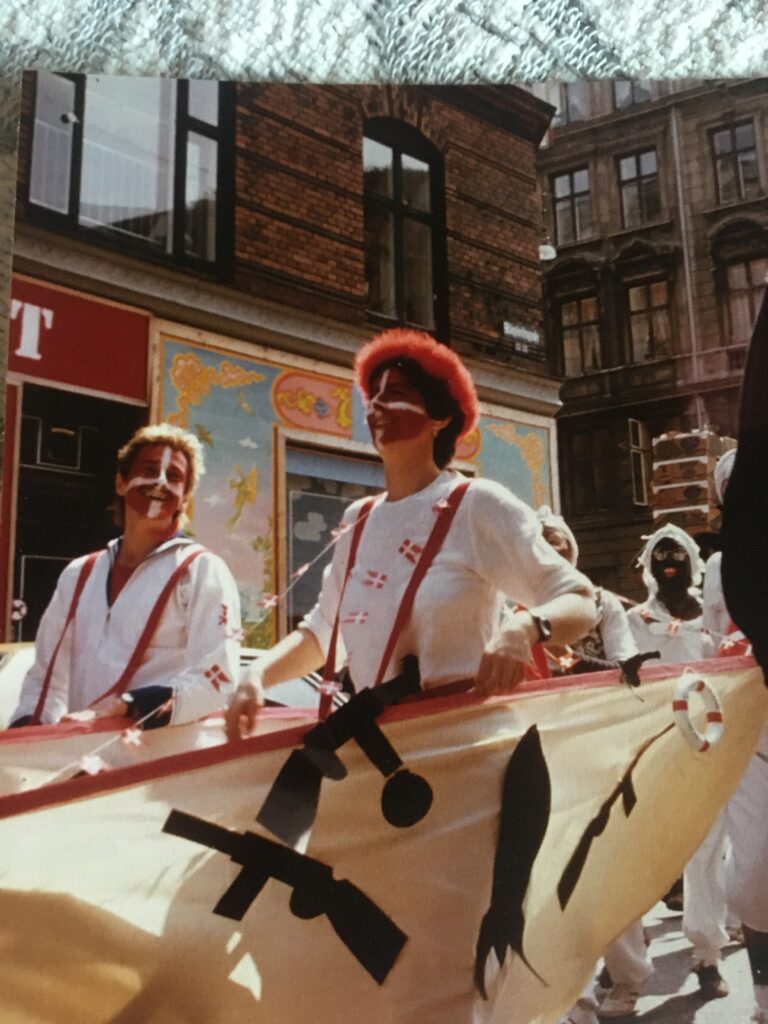WUS Denmark (WUSD) became part of the international WUS (WUSI) programme in 1956. It was a branch in Denmark that was represented by the Danske Studerendes Fællesrå (DSF – Danish Students Council). WUSI turned its focus from assistance to students in Europe to the third world from the early 1960s. For WUS in Denmark that led to becoming more involved in international political work as the political students’ movement came to the fore. In 1966 WUSD became a founding member of the anti-apartheid movements in the Apartheid Committee and received funds from the Apartheid Appropriation to WUS International for the South African Committee for Higher Education (SACHED) and other scholarship programmes in South Africa and Rhodesia. Its initial political work was support for the liberation movement in Southern Africa, both in the struggle against the Portuguese colonial rulers, and the apartheid regime.

In addition to WUSD’s efforts, funds were raised in Denmark for this work through the One Day’s Work which was an annual collection campaign by high school students. There was also support from the Danish government. Education and relief aid to refugee camps in Angola was the initial focus, with subsequent activities in South Africa, Namibia and Mozambique.
IN 1970, Danish WUS detached from WUSI and became an independent organisation. By 1991 it had changed its name to IBIS, which according to the website is “a symbolic reference to the ibis bird flying from North to South, feeling at home in both hemispheres”.
WUSD work began in Central America in the 1980s in solidarity with peoples in the region who were initiating rebellion against decades of dictatorship. It entered into cooperation with new governments and popular organisations in Nicaragua, Guatemala, El Salvador and Honduras. Local development and support for the development of civil society organisations constituted the major work undertaken by WUSD.
South America had not yet seen true democracy but disaffection was growing amongst populations. WUSD, now under the name IBIS, initiated a project in Chile in 1980 and in Bolivia in 1985, while in the 1990s IBIS began to cooperate with indigenous peoples in Ecuador and Peru. The aim was strengthening their abilities to claim their democratic rights.
Quality education, support to civil society and public participation in good governance continued as IBIS activity throughout the 1990s and 2000s. In the view of Oxfam Ibis (a major organisational change that began in the 1990s), the three areas listed above are central for intervention to bring a society on the road to influence and sustainable development for all its citizens.
Today, Oxfam IBIS is committed to the concept that through education, democratic empowerment and access to resources, even the poorest communities can make true progress on the path to development. Behind the scenes, Oxfam IBIS plays a vital role in an effort to support the creation of a just and democratic civil society in Africa and Latin American. Since 2016 it has been a member of Oxfam International.
